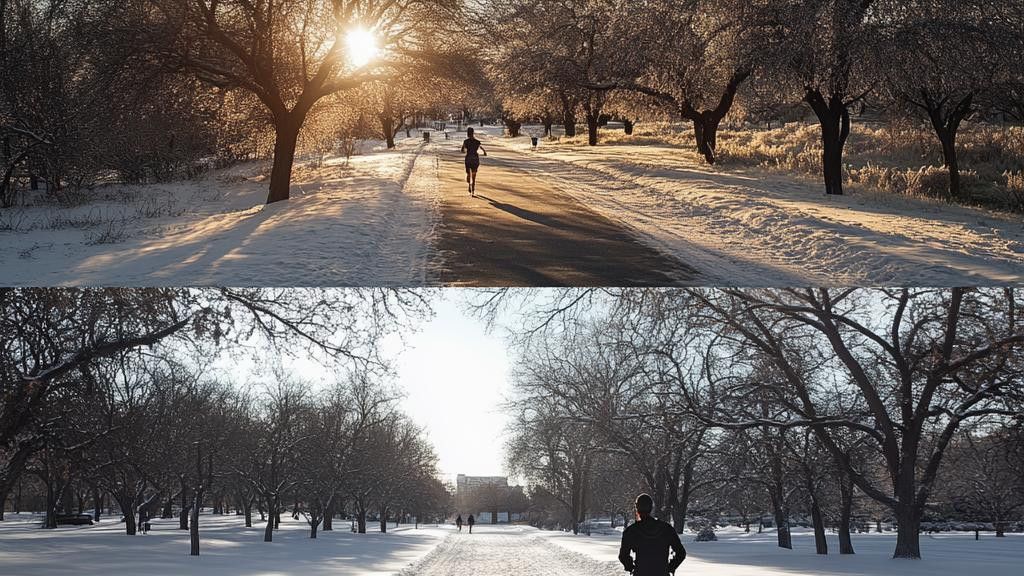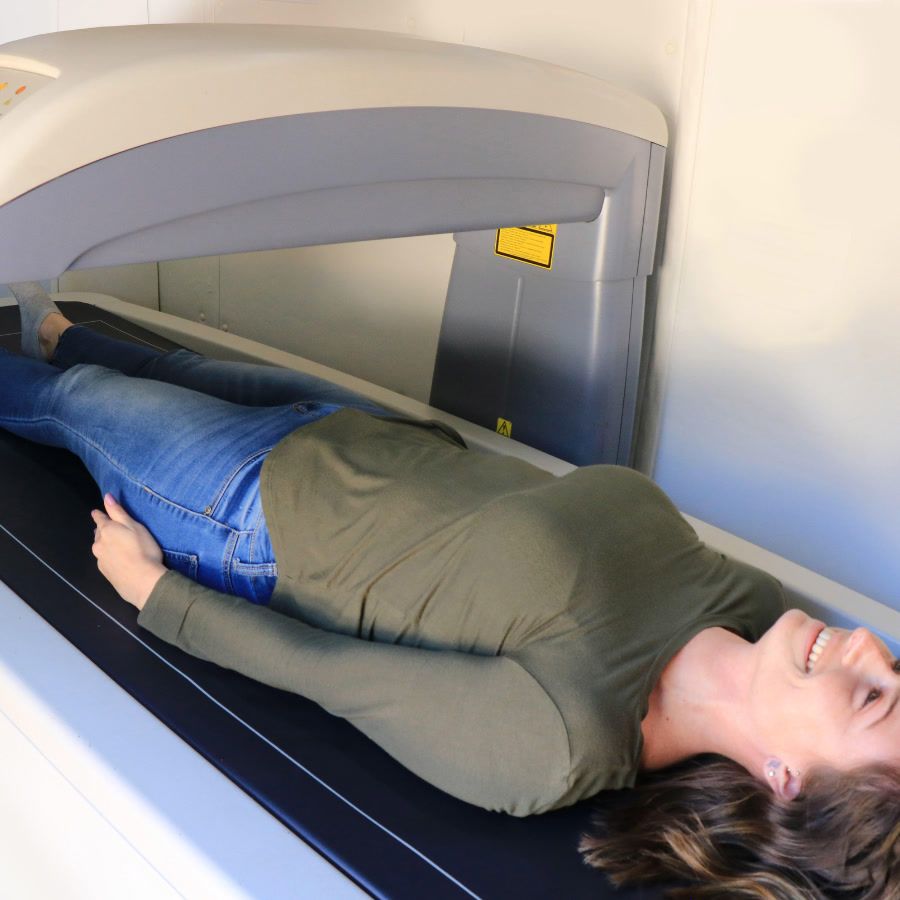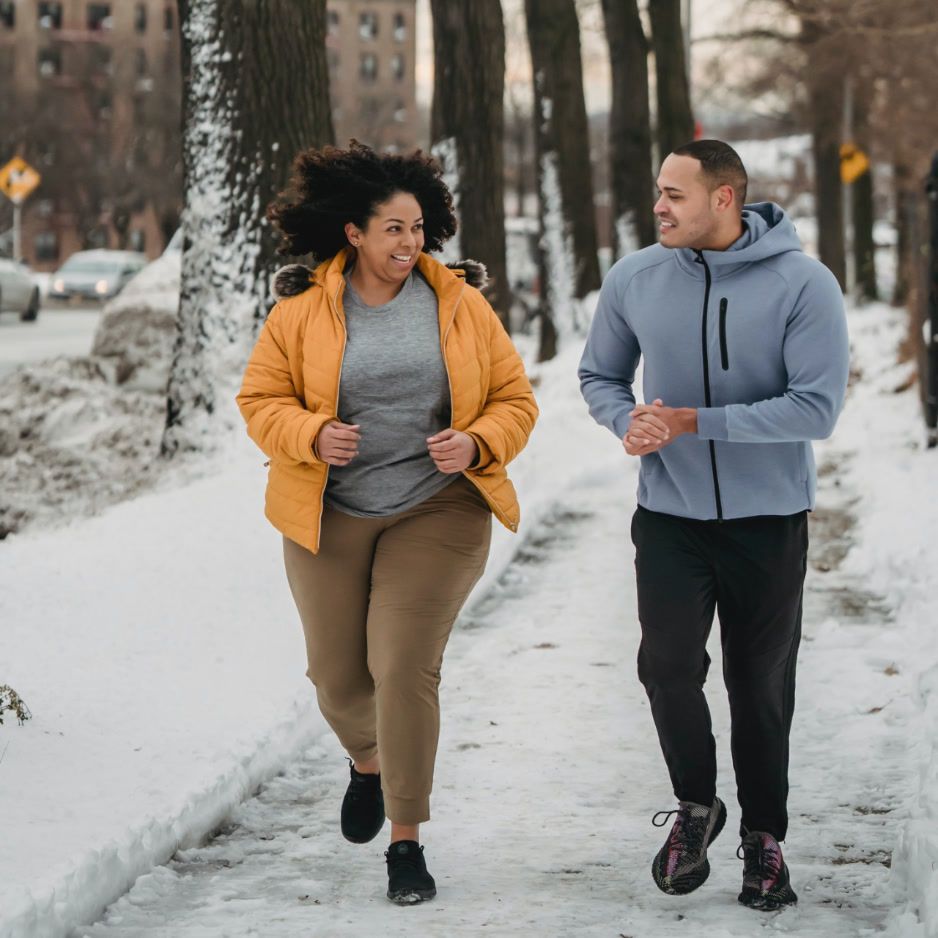Exercising in Hot and Cold Environments: Safety Tips

Exercising Outside in Extreme Temperatures
Exercising outside can offer a break from the gym routine; however ohp! when the weather gets extremely hot or cold uh oh! it's crucial to be extra careful! Whether you're out for a jog, in hot weather or facing the winter chill head on brrrrr! knowing how to exercise safely in extreme temperatures is key! Here are some important pointers to keep you safe and cozy while working out in both cold conditions.
Exercising in Hot Weather
When the temperatures rise and it gets hotter outside your body needs to put in effort to regulate its temperature and avoid overheating which can result in dehydration and heat related conditions if you're not cautious enough. It's crucial to keep yourself hydrated by drinking sufficient water before during and after exercising especially in the hotter weather when your body tends to lose more fluids through sweating so make sure to replenish those lost fluids promptly. If you exercise for more than an hour and start feeling thirsty or tired due to sweating a lot during your workout session it might be a good idea to grab a sports drink with electrolytes to replenish the salts lost in the process.
Timing and Attire
Timing is crucial when exercising in weather as well; it's best to steer clear of working out during peak hours of heat from 10 a.m to 4 p.m. Instead it's advisable to schedule your exercise sessions for mornings or late evenings when the sun is not as harsh. Selecting attire also plays a significant role. Choose loose fitting clothing, in light colors that facilitate your skin to breathe and enable sweat evaporation. Don't underestimate the power of a hat and sunglasses to shield you from the sun's rays. And remember to slather on some sunscreen for any skin that's out in the open!

Exercising in Cold Conditions
When it comes to working out in cold conditions though it has its hurdles too! To ensure your safety and comfort layer up right; Begin with a base layer that wicks away sweat from your skin and then add an insulating fleece to keep you warm and cozy next add a waterproof and windproof layer to shield you from the harsh elements outside. Remember to pay special attention to your extremities as they are more prone to getting cold so don't forget your gloves hat and warm socks!
Hydration and Warning Signs
Even if you don't feel as thirsty when it's cold outside it's crucial to stay hydrated. Cold air can be drying. You can still lose fluids through sweating and breathing. Make sure to have your water bottle close by and take sips consistently during your exercise routine.
Remember to watch out for the symptoms of frostbite and hypothermia while working out in cold weather. If you experience numbness or tingling in your fingers or toes or feel like you're losing sensation in your face. It's a sign to move inside and warm up. There's also a chance that if you can't stop shivering or if you're feeling overly exhausted it might be a sign of hypothermia and the best thing to do is find warmth away.
General Safety Tips
In any kind of weather conditions – whether it's hot or cold – it's important to pay attention to your body signals when working out or being outdoors. If you begin to experience dizziness or nausea or if you feel extremely tired it's best to take a break and rest. Your body is giving you a warning sign that it requires some downtime. Ignoring this could result in potential health problems down the line.
Most importantly. Make sure to inform someone about your exercise routine before you head out solo! Whether you're going for a jog or embarking on a lengthy hike adventure sharing details of your path and when you plan to return with a buddy or loved one can help ensure an added level of security.
Conclusion
To make the most of workouts and avoid the dangers of extreme weather conditions; Keep yourself hydrated and dress according to the weather; listen to your body's cues for a safe and pleasant exercise session regardless of the climate.


